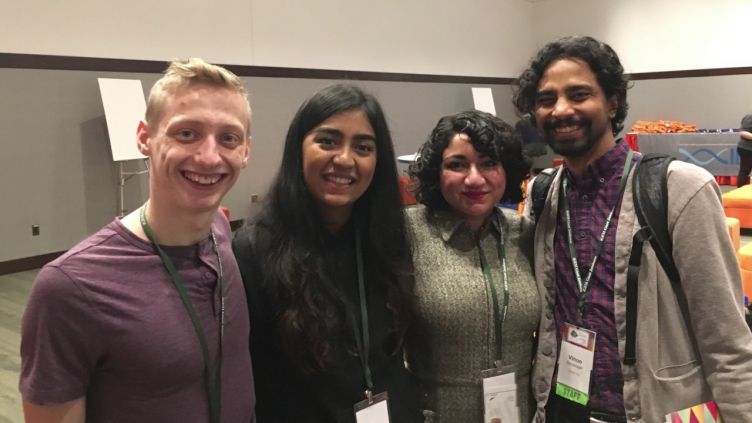I chose to do bioengineering at the University of Sheffield because I believe bioengineering is where medicine meets technology

Watch: our interview with Saylee.
I chose to do bioengineering at the University of Sheffield because I believe bioengineering is where medicine meets technology. It's a very fast-growing industry and there's something new every day, state-of-the-art stuff, especially at the University of Sheffield. There's researchers from all over the world doing really cool things and bioengineering at Sheffield you get to learn modules from a variety of subjects such as mass electronics, control systems engineering, mechanical engineering and then you get that flexibility to choose a specialization in your second year. I chose to do tissue engineering and bio-processing in my second year.
Currently I'm doing a year in industry at RB, formerly known as Reckitt Benckiser, and the job that I do right now is the role of an R&D Assistant so I work in labs half the time and I'm also working on regulatory licensing outside the lab. It's a mixture of how to get a product on the market and really looking at the business perspective of things: developing current products that are already on the market, looking at licensing those, rolling them out into newer markets and then increasing the portfolio of the business.
I think the most important thing about the course is the fact that it opens so many doors for you - it has for me in so many ways. I did a competition called iGEM last year where I worked for 10 weeks just before my placement started at a biomedical science lab at the University where we built a diagnostic device for bacterial infection - we were trying to combat the increase in antimicrobial resistance - and that took us as a team to Boston to present our project. This opened more doors for me as I was chosen to represent the entire competition as a delegate at the United Nations Biodiversity Conference. I think bioengineering has opened my eyes to opportunities available globally and they've done that through teaching me so many things in a diverse range of subjects.
In the future I'd like to find a balance between industry and academia. I've always been the sort of person to pursue academia and so a PhD has always been on the horizon for me but my current year in industry has really opened my eyes to seeing health care and bioengineering from an industrial and business perspective so I'd like to keep my options open and seek opportunities in both areas and see what I would like to do after I graduate. Things could really change in my final year and I could go on and do something completely different so I'm open to both academia and industry at this point.
The best thing about being an engineering student is just how versatile you become after doing your course. Engineering at Sheffield has taught me not only to be a bioengineer but how to apply my engineering skills in areas that are new to me and areas that relate to my degree but that I don't have a specific specialization in. That's a result of doing modules in mechanical engineering, chemical engineering, in design and computer science - it's all a result of that mixture and melting pot of subjects that we're taught and all the different challenges like the Engineering You're Hired and the Global Engineering Challenge that we're given in first and second years. It's a result of all those skills that I've gained from that the adaptability I think is number one.
We interviewed Saylee in 2017.

International undergraduate scholarships
We are offering scholarships of £2,500 for each year (subject to a 60% average) of your undergraduate degree. The maximum value is £10,000 for four-year programmes.

